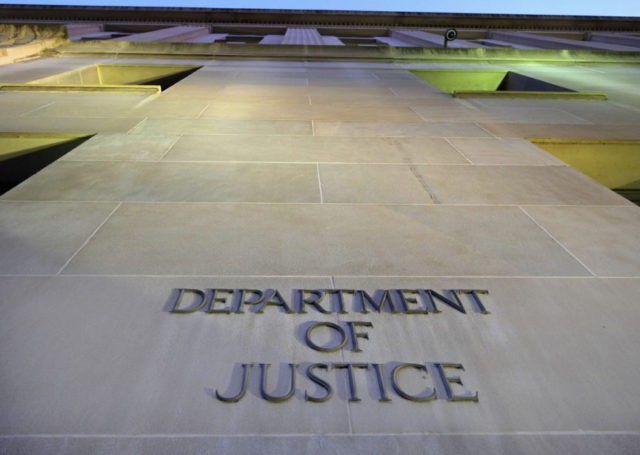The Justice Department filed its much-anticipated lawsuit to block AT&T’s $85.4 billion bid for Time Warner, signaling the end of the Obama era of antitrust and the beginning of the Trump era.
Although written in the often dry prose that characterizes many legal documents, the Justice Department’s challenge to the AT&T deal caps a dramatic showdown and marks a departure from the practices of the Obama administration, whose approach to mergers in media, communications, and technology often felt outdated–as if it were rooted in an earlier era.
The Obama administration’s Justice Department, for example, approved Comcast’s acquisition of NBCUniversal in 2011, imposing numerous conditions that demanded a level of scrutiny and regulatory vigilance that has been notably absent in the years since. For many on the political left and right, that deal has come to stand for the proposition that so-called behavioral remedies are not able to effectively avoid anti-competitive harm in the digital-everything age.
Makan Delrahim, the Justice Department’s top antitrust lawyer, made this point in a speech to fellow lawyers last week. “Behavioral remedies presume that the Justice Department should serve as a roving ombudsman of the affairs of business. Even if we wanted to do this, we often don’t have the skills or the tools to do so effectively,” he said.
Delrahim’s speech made clear that in his view–which is to say, now the view of the U.S. government–“antitrust is law enforcement, not regulation.” That means that effective antitrust enforcement should not require erecting new powers for the administrative state but instead assure that markets can function properly. Indeed, Delrahim argued that his view of antitrust regulation could assist with reducing regulation–what Steven Bannon once referred to as “the deconstruction of the administrative state.”
“At its best, it supports reducing regulations, by encouraging competitive markets that, as a result, require less government intervention. That is to say, proper and timely antitrust enforcement helps competition police markets instead of bureaucrats in Washington, D.C. doing it,” Delrahim said. “Vigorous antitrust enforcement plays an important role in building a less regulated economy in which innovation and business can thrive, and ultimately the American consumer can benefit.”
The Obama administration’s reliance on behavioral remedies, Delrahim said, made antitrust not enforcement but “fundamentally regulations, imposing ongoing government oversight on what should preferably be a free market.”
This shift in the fulcrum of antitrust has certainly caught AT&T by surprise. In a hastily organized press conference following the filing of the Justice Department’s lawsuit, AT&T chief Randall Stephenson and the company’s lawyers repeated over and over again the idea that the lawsuit was “a serious and very troubling departure from antitrust guidelines and decades of legal precedence,” in the words of AT&T’s outside counsel Dan Petrocelli. Similarly, Petrocelli pointed out that the government has often failed when it has pursued cases against “vertical mergers” in recent decades.
Those complaints, however, sound terribly dated. It should come as no surprise that novel legal interpretations–or, in this case, revivals of traditional interpretations long out-of-fashion–are employed as the market develops in a new direction. The same approaches to antitrust law that led to the break-up of the old AT&T in 1982 can hardly be expected to keep in check anticompetitive business combinations in today’s digital reality.
And there can be little question that both the Justice Department’s practice and internal guidelines have struggled to keep up with new developments. For one thing, Justice’s guidelines on vertical mergers were last updated in 1984. And many of the deals that have been approved–not just the Comcast purchase of NBCUniversal–probably should have raised at least an eyebrow or two. Think of how quickly, for example, Facebook is using Instagram to destroy the market share of Snapchat and market value of its parent company, Snap. Where were the antitrust enforcement officers when that deal came together?
Although business interests are often assumed to be opposed to regulation, the AT&T case–like the Comcast merger before it–lays bare are a starker truth. Businesses often prefer regulators to free markets. AT&T said in the press conference Monday that it would have preferred the kind of regulation and supervision mandated for the Comcast deal than a “structural remedy” that requires them to sell assets. In other words, it wants the Obama era and the regulators back. It doesn’t like the way enforcement feels.
Populists on the right and left can probably see that for what it is: a sign that the status quo favored the powerful corporate interests above the interests of consumers, competitors, and innovators.
Perhaps the one thing AT&T’s Stephenson got undoubtedly right at Monday’s press conference was when he said that the Justice Department’s lawsuit had sent a shiver of doubt throughout all the big players in tech, communications, and media. They no longer know what they thought they knew. The rules are being rewritten once again.
And this time the buyers who need to beware are the corporate giants.

COMMENTS
Please let us know if you're having issues with commenting.